עס איז געװענ אַ זומער־טאָג
װי שטענדיק זוניק־שײן,
און די נאַטור האָט דאַן געהאַט
אין זיך אזױ פֿיל חן,
עס האָבן פֿײגעלעך געזונגען,
פֿרײלעך זיך אַרומגעשפּרונגען,
אין געטאָ האָט מען אונדז געהײסן גײן.
אָך שטעלט זיך פֿאַר װאָס ס'איז פֿון אונדז געװאָרן!
פֿאַרשטאַנגן האָבן מיר: ס'איז אַלץ פֿאַרלױרן.
נישט געהאָלפֿן אונדזער בעטן,
אַז ס'זאׇל עמעצער אונדז רעטן -
פֿאַרלאָזן האָבן מיר דאָך אונדזער הײם.
געװעזן זײַנען מיר צופֿיל
באַפֿױלן האָט דער האַר
צו ברענגען ייׅדן פֿון אַרום
און שיסן אױף פּאָנאַר.
פּוסט זײַנען געװאָרן שטיבער,
אָבער פֿול דערפֿאַר די גריבער.
דער שׂונא האָט דערגרײכט וײַן גרױסן ציל.
אױף פּאָנאַר איצט זעט מען אױף די װעגן
זאַכן, היטלען דורכגענעצט פֿון רעגן,
דאָס זײַנבן זאַכן פֿון קרבנות,
פֿון די הײליקע נשמות,
די ערד האָט זײ אױף אײביק צוגעדרעקט.
און איצט איז װידער זוניק־שײן,
שמעקט פּראַכטפֿול אַלץ אַרום,
און מיר זײַנען פֿאַרפּײַניקטע
און לײַדן אַלע שטום.
אָפּגעשניטן פֿון דער װעלט,
מיט הױכע מױערן פֿאַרשטעלט.
אַ שטראַל פֿון האָפֿנונג דערװעכט זיך קױם.
װי שטענדיק זוניק־שײן,
און די נאַטור האָט דאַן געהאַט
אין זיך אזױ פֿיל חן,
עס האָבן פֿײגעלעך געזונגען,
פֿרײלעך זיך אַרומגעשפּרונגען,
אין געטאָ האָט מען אונדז געהײסן גײן.
אָך שטעלט זיך פֿאַר װאָס ס'איז פֿון אונדז געװאָרן!
פֿאַרשטאַנגן האָבן מיר: ס'איז אַלץ פֿאַרלױרן.
נישט געהאָלפֿן אונדזער בעטן,
אַז ס'זאׇל עמעצער אונדז רעטן -
פֿאַרלאָזן האָבן מיר דאָך אונדזער הײם.
געװעזן זײַנען מיר צופֿיל
באַפֿױלן האָט דער האַר
צו ברענגען ייׅדן פֿון אַרום
און שיסן אױף פּאָנאַר.
פּוסט זײַנען געװאָרן שטיבער,
אָבער פֿול דערפֿאַר די גריבער.
דער שׂונא האָט דערגרײכט וײַן גרױסן ציל.
אױף פּאָנאַר איצט זעט מען אױף די װעגן
זאַכן, היטלען דורכגענעצט פֿון רעגן,
דאָס זײַנבן זאַכן פֿון קרבנות,
פֿון די הײליקע נשמות,
די ערד האָט זײ אױף אײביק צוגעדרעקט.
און איצט איז װידער זוניק־שײן,
שמעקט פּראַכטפֿול אַלץ אַרום,
און מיר זײַנען פֿאַרפּײַניקטע
און לײַדן אַלע שטום.
אָפּגעשניטן פֿון דער װעלט,
מיט הױכע מױערן פֿאַרשטעלט.
אַ שטראַל פֿון האָפֿנונג דערװעכט זיך קױם.
Contributed by Alessandro + CCG AWS Staff - 2009/1/20 - 09:21
Language: Yiddish
Il testo in traslitterazione.
ES IZ GEVEN A ZUMER-TOG
Es iz geven a zumer-tog
Vi shtendik zunik-sheyn,
Un di natur hot dan gehat
In zikh azoy fil kheyn,
Es hobn feygelekh gezungen,
Freylekh zikh arumgeshprungen,
In geto hot men undz geheysn geyn.
Okh shtelt zikh far vos s’iz fun undz gevorn!
Farshtanen hobn mir: s’iz alts farloyrn.
Nisht geholfn undzer betn,
Az s’zol emetser undz retn-
Farlozn hobn mir dokh undzer heym.
Gevezn zaynen mir tsufil –
Bafoyln hot der har
Tsu brengen yidn fun arum
Un shisn af Ponar.
Pust zaynen gevorn shtiber,
Ober ful derfar di griber.
Der soyne hot dergreykht zayn groysn tsil.
Af Ponar itst zet men af di vegn
Zakhn, hitlen durkhgenetst fun regn,
Dos zaynen zakhn fun karbones,
Fun di heylike neshomes,
Di erd hot zey af eybik tsugedrekt.
Un itst iz vider zunik-sheyn,
Shmekt prakhtful alts arum,
Un mir zaynen farpaynikte
Un laydn ale shtum.
Opgeshnitn fun der velt,
Mit hoykhe moyern farshtelt,
A shtral fun hofnung dervekt zikh koym.
Es iz geven a zumer-tog
Vi shtendik zunik-sheyn,
Un di natur hot dan gehat
In zikh azoy fil kheyn,
Es hobn feygelekh gezungen,
Freylekh zikh arumgeshprungen,
In geto hot men undz geheysn geyn.
Okh shtelt zikh far vos s’iz fun undz gevorn!
Farshtanen hobn mir: s’iz alts farloyrn.
Nisht geholfn undzer betn,
Az s’zol emetser undz retn-
Farlozn hobn mir dokh undzer heym.
Gevezn zaynen mir tsufil –
Bafoyln hot der har
Tsu brengen yidn fun arum
Un shisn af Ponar.
Pust zaynen gevorn shtiber,
Ober ful derfar di griber.
Der soyne hot dergreykht zayn groysn tsil.
Af Ponar itst zet men af di vegn
Zakhn, hitlen durkhgenetst fun regn,
Dos zaynen zakhn fun karbones,
Fun di heylike neshomes,
Di erd hot zey af eybik tsugedrekt.
Un itst iz vider zunik-sheyn,
Shmekt prakhtful alts arum,
Un mir zaynen farpaynikte
Un laydn ale shtum.
Opgeshnitn fun der velt,
Mit hoykhe moyern farshtelt,
A shtral fun hofnung dervekt zikh koym.
Contributed by Alessandro - 2013/6/3 - 22:18
Language: Italian
Traduzione italiana di Riccardo Venturi
3 giugno 2013
3 giugno 2013
ERA UN GIORNO D'ESTATE
Era un giorno d'estate,
assolato e splendente, come sempre,
e la natura aveva in sé
una tale bellezza affascinante...
Gli uccelletti cantavano
saltando allegri di qua e di là,
e ci hanno ordinato di andare nel ghetto.
Oh, figuratevi che cosa ne è stato di noi!
Abbiamo capito: tutto era perduto.
Non servì il nostro implorare
che qualcuno ci aiutasse,
abbiamo abbandonato le nostre case.
Eravamo troppi.
Il padrone ha ordinato
di prendere gli ebrei del vicinato
e di fucilarli a Ponary.
Le case furono svuotate
e si riempirono le fosse.
Il nemico aveva raggiunto il suo grande scopo.
A Ponary ora si vedono sulle strade
cose, cappelli inzuppati dalla pioggia.
Sono gli oggetti delle vittime,
delle anime sacre
che la terra ha ricoperto per sempre.
Ora di nuovo splende il sole,
tutt'intorno c'è un magnifico profumo,
e noi siamo in preda al dolore
e soffriamo in silenzio.
Tagliati fuori dal mondo,
nascosti da alti muri,
un barlume di speranza riluce appena.
Era un giorno d'estate,
assolato e splendente, come sempre,
e la natura aveva in sé
una tale bellezza affascinante...
Gli uccelletti cantavano
saltando allegri di qua e di là,
e ci hanno ordinato di andare nel ghetto.
Oh, figuratevi che cosa ne è stato di noi!
Abbiamo capito: tutto era perduto.
Non servì il nostro implorare
che qualcuno ci aiutasse,
abbiamo abbandonato le nostre case.
Eravamo troppi.
Il padrone ha ordinato
di prendere gli ebrei del vicinato
e di fucilarli a Ponary.
Le case furono svuotate
e si riempirono le fosse.
Il nemico aveva raggiunto il suo grande scopo.
A Ponary ora si vedono sulle strade
cose, cappelli inzuppati dalla pioggia.
Sono gli oggetti delle vittime,
delle anime sacre
che la terra ha ricoperto per sempre.
Ora di nuovo splende il sole,
tutt'intorno c'è un magnifico profumo,
e noi siamo in preda al dolore
e soffriamo in silenzio.
Tagliati fuori dal mondo,
nascosti da alti muri,
un barlume di speranza riluce appena.
Language: English
English translations by Lloica Czackis and Bella Klein.
All lyrics have been adapted and transliterated according to the standardized YIVO Yiddish, except for where is required by rhyme.
All lyrics have been adapted and transliterated according to the standardized YIVO Yiddish, except for where is required by rhyme.
IT WAS A SUMMER'S DAY
It was a summer’s day,
As always beautifully sunny,
And nature had within it
So much charm.
Birds were singing
Cheerfully hopping around,
As we were ordered into the ghetto.
Oh, imagine what became of us!
We understood: all is lost,
Our pleas were of no help
Asking for someone to rescue us,
We had deserted our home.
[...] We were too many -
The master ordered
Jews to be brought from the vicinity,
And be shot at Ponar.
The houses were emptied,
But the ditches were filled.
The enemy had attained his desired goal.
Now at Ponar one can see on the roads
Things, hats soaked by the rain.
These are the belongings of the victims.
Of the holy souls,
Which the earth has covered forever.
And now, once more, it is beautifully sunny,
A wonderful smell all around,
And we are full of grief,
And we all suffer in silence.
Cut off from the world,
Hidden behind high walls,
A ray of hope barely stirs.
It was a summer’s day,
As always beautifully sunny,
And nature had within it
So much charm.
Birds were singing
Cheerfully hopping around,
As we were ordered into the ghetto.
Oh, imagine what became of us!
We understood: all is lost,
Our pleas were of no help
Asking for someone to rescue us,
We had deserted our home.
[...] We were too many -
The master ordered
Jews to be brought from the vicinity,
And be shot at Ponar.
The houses were emptied,
But the ditches were filled.
The enemy had attained his desired goal.
Now at Ponar one can see on the roads
Things, hats soaked by the rain.
These are the belongings of the victims.
Of the holy souls,
Which the earth has covered forever.
And now, once more, it is beautifully sunny,
A wonderful smell all around,
And we are full of grief,
And we all suffer in silence.
Cut off from the world,
Hidden behind high walls,
A ray of hope barely stirs.
Contributed by Alessandro - 2009/1/20 - 09:24
Quando Bartleby / Bernart si chiamava ancora Alessandro, il 20 gennaio 2009 agli albori della Sezione Yiddish che ha praticamente fondato da solo coi suoi ritrovamenti, succedeva che registrasse una canzone in yiddish come scritta in "ebraico"; e così è rimasta fino ad oggi 3 giugno 2013. E così, quasi alla fine della ristrutturazione totale della sezione, l'ebraico perde una canzone e lo yiddish ne guadagna una, e delle più belle...
Riccardo Venturi - 2013/6/3 - 18:14
Ieri sera al Conservatorio di Torino si è esibita Ute Lemper nello spettacolo "Songs for Eternity", in occasione della Giornata della Memoria.

Il libretto con i testi delle canzoni e le relative traduzioni in italiano è stato curato dal Consiglio Regionale del Piemonte. La più parte di essi è stato tratto dalle CCG/AWS, con traduzioni di Riccardo Venturi, Francesca Paolino, Ferdinando Albeggiani e Giacomo Magrini. Un altro paio di traduzioni sono stae curate dal Goethe Institut e dalla Comunità Ebraica di Torino.
Il Consiglio Regionale del Piemonte ringrazia espressamente per la collaborazione le CCG/AWS.
Il programma prevedeva, tra le altre:
- עס איז געװענ אַ זומער־טאָג, traslitterato come "A Zumer-Tog", di Rilke (in realtà Rikle) Glezer e H. Yablokof (in realtà Yablokoff), con la traduzione italiana di Riccardo Venturi;
- "Auf der Heide" di Willy Rosen, canzone non presente sulle CCG/AWS, tradotta in italiano da Isabella Amico di Meane ("Nella brughiera");
- Der Abend, di Selma Meerbaum-Eisinger, con la traduzione italiana di Francesca Paolino, ripresa dalle CCG /AWS ma in realtà originariamente contenuta nel suo "Selma Meerbaum-Eisinger, Florilegio" del 2015;
- Ich wandre durch Theresienstadt, di Ilse Weber, con la traduzione italiana di Ferdinando Albeggiani, ripresa dalle CCG /AWS ma in realtà originariamente proposta su Lieder.net;
- "Magarit Kelech", di Victor Ulmann (in realtà Viktor Ullmann), canzone non presente sulle CCG/AWS, tradotta in italiano da Tommy Swarz ("Come le margherite");
- שטילער, שטילער (Shtiler, Shtiler), di Shmerke Kaczerginski, con traduzione italiana attribuita erroneamente a Giacomo Magrini e ripresa dalla CCG/AWS, dove in realtà la traduzione è di Riccardo Venturi, più una versione cantabile di Andrea Buriani;
- זאָג ניט קײנמאָל (Zog nit keynmol), di Hirsh Glik, dove la traduzione italiana è correttamente attribuita a Riccardo Venturi, ma è quella della versione ebraica di Avraham Shlonsky.
Insomma, il Consiglio Regionale del Piemonte ci ha messo del suo, con qualche inesattezza che forse non avrebbe commesso se la collaborazione l'avesse chiesta veramente... Ma in Regione, si sa, le cose si fanno sempre un po' di fretta e furia, e non ci avranno avuto tempo...

Il libretto con i testi delle canzoni e le relative traduzioni in italiano è stato curato dal Consiglio Regionale del Piemonte. La più parte di essi è stato tratto dalle CCG/AWS, con traduzioni di Riccardo Venturi, Francesca Paolino, Ferdinando Albeggiani e Giacomo Magrini. Un altro paio di traduzioni sono stae curate dal Goethe Institut e dalla Comunità Ebraica di Torino.
Il Consiglio Regionale del Piemonte ringrazia espressamente per la collaborazione le CCG/AWS.
Il programma prevedeva, tra le altre:
- עס איז געװענ אַ זומער־טאָג, traslitterato come "A Zumer-Tog", di Rilke (in realtà Rikle) Glezer e H. Yablokof (in realtà Yablokoff), con la traduzione italiana di Riccardo Venturi;
- "Auf der Heide" di Willy Rosen, canzone non presente sulle CCG/AWS, tradotta in italiano da Isabella Amico di Meane ("Nella brughiera");
- Der Abend, di Selma Meerbaum-Eisinger, con la traduzione italiana di Francesca Paolino, ripresa dalle CCG /AWS ma in realtà originariamente contenuta nel suo "Selma Meerbaum-Eisinger, Florilegio" del 2015;
- Ich wandre durch Theresienstadt, di Ilse Weber, con la traduzione italiana di Ferdinando Albeggiani, ripresa dalle CCG /AWS ma in realtà originariamente proposta su Lieder.net;
- "Magarit Kelech", di Victor Ulmann (in realtà Viktor Ullmann), canzone non presente sulle CCG/AWS, tradotta in italiano da Tommy Swarz ("Come le margherite");
- שטילער, שטילער (Shtiler, Shtiler), di Shmerke Kaczerginski, con traduzione italiana attribuita erroneamente a Giacomo Magrini e ripresa dalla CCG/AWS, dove in realtà la traduzione è di Riccardo Venturi, più una versione cantabile di Andrea Buriani;
- זאָג ניט קײנמאָל (Zog nit keynmol), di Hirsh Glik, dove la traduzione italiana è correttamente attribuita a Riccardo Venturi, ma è quella della versione ebraica di Avraham Shlonsky.
Insomma, il Consiglio Regionale del Piemonte ci ha messo del suo, con qualche inesattezza che forse non avrebbe commesso se la collaborazione l'avesse chiesta veramente... Ma in Regione, si sa, le cose si fanno sempre un po' di fretta e furia, e non ci avranno avuto tempo...
B.B. - 2019/2/1 - 22:40
Ciao B.B. in effetti giorni fa avevamo ricevuto una mail dalla presidenza del consiglio regionale del Piemonte che ci chiedeva il permesso di utilizzare le traduzioni e avevamo risposto di sì che potevano utilizzare liberamente le traduzioni fatte per questo sito e che sarebbe stata cosa gradita essere citati.
Lorenzo - 2019/2/1 - 23:20
A questo punto posso candidarmi per il consiglio regionale del Piemonte... BB, come si dice "Piemonte Anarchico" in piemontese...?
Riccardo Venturi - 2019/2/2 - 12:28
Forse "Piemont anàrchic(o)", o "Piemont rëpubblicco", non saprei, Riccardo... "Assenza di comando" e "cosa del popolo" sono in fondo etimologie di una certa vicinanza...
Approfittane, che qui sono già in campagna elettorale... Io gradirei provare il Venturik al posto del Kiampa!
Comunque, va bene che ve l'abbiano chiesta la collaborazione, quelli del Consiglio Regionale del Piemonte, però se ci avessero messo un po' più di attenzione...
Saluti
Approfittane, che qui sono già in campagna elettorale... Io gradirei provare il Venturik al posto del Kiampa!
Comunque, va bene che ve l'abbiano chiesta la collaborazione, quelli del Consiglio Regionale del Piemonte, però se ci avessero messo un po' più di attenzione...
Saluti
B.B. - 2019/2/2 - 14:19
Io mi presento come indipendente in "Feudalesimo e Libertà".
La maggior parte delle proposte politiche di quella lista, dalla reintroduzione dello ius primae noctis (che sarebbe anche ora) alla tassazione del polveratico presenta una fattibilità e una razionalità incommensurabilmente superiori al novanta per cento di quanto perpetrato dall'attuale esecutivo...
La maggior parte delle proposte politiche di quella lista, dalla reintroduzione dello ius primae noctis (che sarebbe anche ora) alla tassazione del polveratico presenta una fattibilità e una razionalità incommensurabilmente superiori al novanta per cento di quanto perpetrato dall'attuale esecutivo...
Io non sto con Oriana - 2019/2/2 - 14:20
INSCO, non so darti torto. Già solo quelle due misure da te annunciate sarebbero più efficaci e sostgenibili di Kuota100 e reddito di cittadinanza.
Se Riccardo non si presentasse con la lista "Piemont Anàrchic", allora voto F&L sicuro!
Un fiorino!
Se Riccardo non si presentasse con la lista "Piemont Anàrchic", allora voto F&L sicuro!
Un fiorino!
B.B. - 2019/2/2 - 14:28
Beh, diciamo che lo ius primae noctis è a volte gravoso anche per chi lo esercita, specie a una certa età. Già in epoche normali quindi si era pensato a sostituirlo con misure adeguate come lo ius gallinarum.
In pratica, lo sposo ci rimetteva il pollaio -che andava diritto al signore avidissimo di brodo di pollo- ma salvava il diritto di far sua la sposa. L'uso pare fosse attestato, secondo fonti non so quanto attendibili (assai poco, temo) nella zona di Benevento.
In pratica, lo sposo ci rimetteva il pollaio -che andava diritto al signore avidissimo di brodo di pollo- ma salvava il diritto di far sua la sposa. L'uso pare fosse attestato, secondo fonti non so quanto attendibili (assai poco, temo) nella zona di Benevento.
Io non sto con Oriana - 2019/2/3 - 10:49
Uhmm, intravedo già i primi problemi d'interpretazione giuridica... Vuol dire che, se salisse al potere F&L, sul ius primae noctis faremo prima uno studio di fattibilità, poi un'analisi costi/benefici, poi una valutazione d'impatto ambientale e poi magari un bel referendum, magari anche due o tre, giusto per far esprimere il popolo somaro, pardon, sovrano... che ne dici?
B.B. - 2019/2/3 - 15:20
In effetti, la cosa può essere nata dall'ambivalenza della parola latina "ius" (scritta anche "jus"), che vuol dire sì "diritto", "giustizia", ma anche "brodo", "succo" (francese "jus", "succo" e, popolarmente, "corrente elettrica" : "coup de jus" = "scossa"; inglese "juice"). "Ius gallinarum" per me vuol dire proprio "brodo di gallina"! E quello e basta.
Riccardo Venturi - 2019/2/3 - 18:55
"....Ovvìa, s'è bell' ccapito; anche stavolta 'un si [censura]..."
(Fuori onda captato dal microfono del cellulare)
(Fuori onda captato dal microfono del cellulare)
Io non sto con Oriana - 2019/2/4 - 07:56
×
![]()
Note for non-Italian users: Sorry, though the interface of this website is translated into English, most commentaries and biographies are in Italian and/or in other languages like French, German, Spanish, Russian etc.

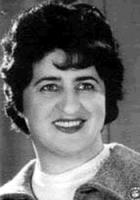
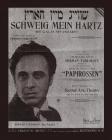
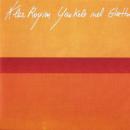

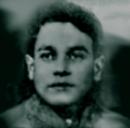
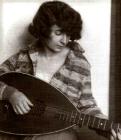
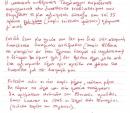
[1942]
Parole di Rikle Glezer
Musica della canzone popolare yiddish פּאַפּיראָסן ("Sigarette"), composta da Hermann Yablokoff.
Lyrics by Rikle Glezer
To the tune of the Yiddish folksong פּאַפּיראָסן ("Cigarettes"), composed by Hermann Yablokoff.
Il brano apre il cd "Partisans of Vilna - The Songs of World War II Jewish Resistance" prodotto da Henry Sapoznik and Josh Waletzky (1989).
La foresta di Ponar (Ponary in polacco, Paneriai in lituano), vicino a Vilnius (Vilna), menzionata nella canzone, è uno dei più famigerati luoghi di esecuzioni di massa effettuate dai nazisti durante l'occupazione. Per maggiori notizie si veda שטילער, שטילער.
"'S'iz geven a zumertog' (It was a summer's day) was written by the 18-year-old Vilna ghetto inmate Rikle Glezer, and based on the melody of the popular pre-war Yiddish theatre song 'Papirosn' (Cigarettes). The song chronicles in painful detail how Jews were driven into the Vilna ghetto, their pleas for help, and the killings that were taking place both en route to the ghetto, and in the nearby forest of Ponar." - Music and the Holocaust
Il testo traslitterato è, in linea di massima, quello di Music and the Holocaust; è stato sottoposto a revisione secondo gli standard YIVO. Il testo in caratteri ebraici, assente dalla Rete, è stato ricostruito a partire dalla traslitterazione. [CCG/AWS Staff]
Born on 17 December 1924, Rikle Glezer was only sixteen when the Nazis invaded her home city of Vilna. She wrote several popular songs during her years of imprisonment in the ghetto. Most of her compositions were lyrics set to the melodies of popular songs: for example, her sarcastic indictment of ghetto life under the Nazi regime, 'You, my ghetto', was set to a melody by Isaak Dunajewski titled 'Oh, my Moscow'. Rather than depicting the beauty of Vilna, however, Glezer's lyrics tell of the grim reality of smuggling food under conditions of disease, exhaustion, and starvation.
Glezer's best-known song was the popular 'S'iz geven a zumertog' (It was a summer's day), which mentions the forest of Ponar, one of the most notorious sites of Nazi mass murder, where thousands of men, women and children from Vilna and the surrounding towns were shot and buried in mass graves. The simple and evocative lyrics were set to the melody of a popular Yiddish theatre song of the inter-war years, 'Papirosn' (Cigarettes), composed by Hermann Yablokoff.
Shortly after composing the song, Glezer was put on a train to be deported to a camp. The teenager managed to escape from the train, and joined the partisans in the forests surrounding Vilna. The youngest member of the partisan group, Glezer continued to write between military actions. Of the 60,000 Jews of Vilna who were alive in 1939, she was one of approximately 3,000 who survived to see the liberation of her home city by the Red Army.